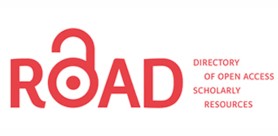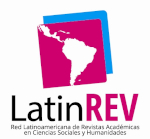TORTO ARADO: PORTRAIT OF REGIONAL IDENTITY IN BRAZILIAN LITERATURE
DOI:
https://doi.org/10.47180/omij.v5i3.325Keywords:
Regionalism, Torto Arado, Cultural Identity, Brazilian Literature.Abstract
In this work, we will explore the role of regionalism and its representation in Brazilian literature, focusing on the novel Torto Arado by Itamar Vieira Junior. This novel, the winner of the LeYa Prize in 2018, narrates the lives of two sisters in the hinterlands of Bahia and delves deeply into issues related to the relationship with the land, cultural traditions, and social conflicts. Our goal is to analyze how the narrative of Torto Arado reveals elements of regionalism, highlighting the relevance of the northeastern region in the construction of the plot and characters. Through critical analyses and literary interpretations, this work seeks to provide a deeper understanding of the novel and its significance within the context of regionalism in Brazilian literature. Our aim is to offer a more thorough comprehension of the work and its meaning in the context of regionalism in Brazilian literature, grounding our discussions in the theoretical contributions of Cândido (2006), Tamaru (2004), and Walnice Nogueira Galvão (2000).
Keywords: Regionalism; Torto Arado; Cultural Identity; Brazilian Literature.
Downloads
References
CANDIDO, Antonio. Formação da literatura brasileira: momentos decisivos (1750- 1880). 10ª ed. Rio de Janeiro: Ouro sobre Azul, 2006.
GALVÃO, W. N. Anotações à margem do regionalismo. Literatura e Sociedade, São Paulo, n. 5, p. 44-55, 2000. DOI: https://doi.org/10.11606/issn.2237-1184.v0i5p44-55
TAMARU, Angela Harumi. A construção literária da mulher nordestina em Rachel de Queiroz. Universidade Estadual de Campinas: Instituto de Estudos da Linguagem. São Paulo, 2004.
VIEIRA JÚNIOR, Itamar. Torto arado. Todavia, 2019.
Downloads
Published
How to Cite
Issue
Section
License
Copyright (c) 2024 Open Minds International Journal

This work is licensed under a Creative Commons Attribution-NonCommercial-NoDerivatives 4.0 International License.
The authors declare that any work submitted, if accepted, will not be published elsewhere, in English or in any other language, and even electronically, unless it expressly mentions that the work was originally published in the Journal.













